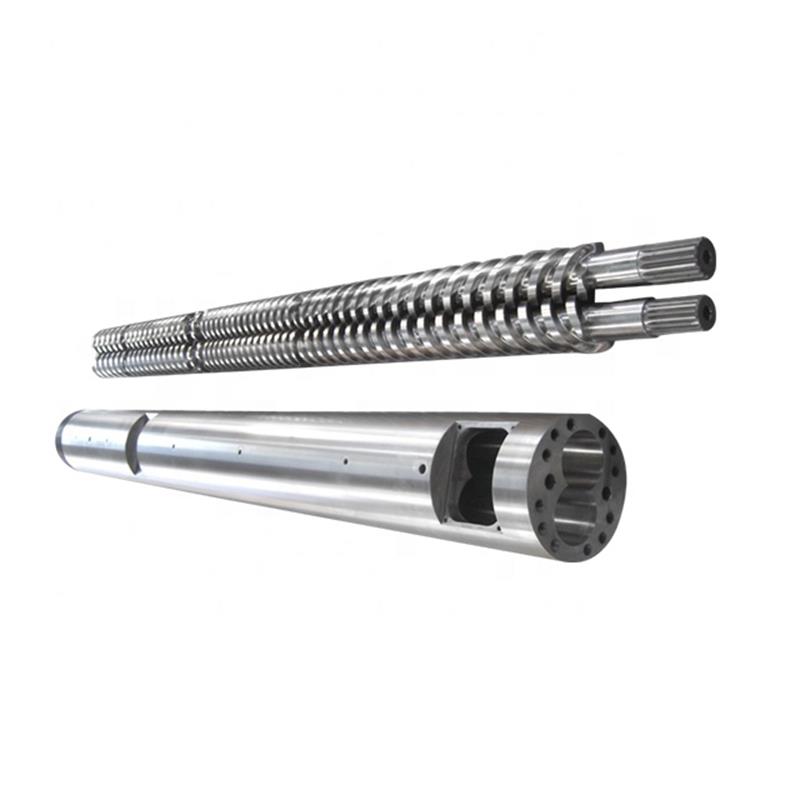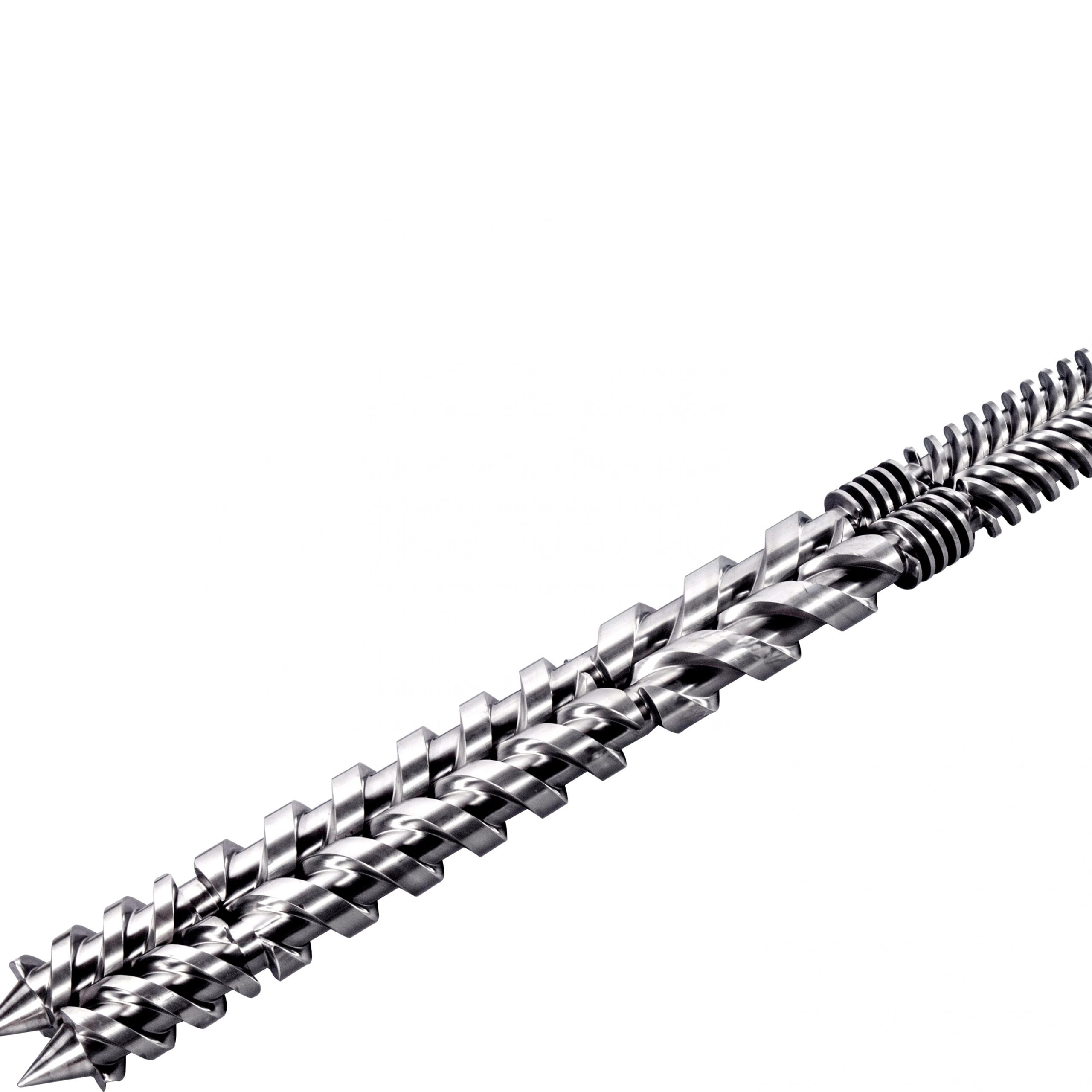How to protect twin screw and barrel

Corrosive, abrasive and high-temperature resistant resins may unknowingly damage the twin-screw barrel and screw. For example, some engineering materials, thermoplastic elastomers and biopolymer materials sometimes create a corrosive environment. In addition, reinforcing materials (such as glass fibers, glass balls, etc.), certain fillers, and additives are abrasive.
In order to avoid affecting production efficiency and product quality, it is necessary to closely monitor the hazards that these materials may cause to the equipment. In order to maintain high processing standards, it is necessary to establish a preventive maintenance program. When needed, the twin-screw barrel and screw should be inspected and measured, and the screw should be pulled out, reinstalled or replaced, because minimal wear will also affect product quality.
To protect equipment from corrosive and abrasive resin damage, the best way is to choose suitable materials to make twin-screw barrel screws. In order to deal with corrosive, abrasive and high-temperature-resistant melts, wear-resistant barrels and screws are manufactured, and the processing cost is about 3 to 4 times higher than that of standard polyolefin screws. This is because wear-resistant alloys are more expensive and difficult to process. But they can provide a longer service life, and maintenance intervals can be longer.
The structure of the twin-screw extruder barrel is basically similar to that of the single-screw extruder screw barrel. From the appearance and structure, the twin-screw barrel is also divided into an integral barrel and a segmented barrel.
Integral barrels are currently used in many applications. For example, the barrels for intermeshing counter-rotating twin-screw extruders and conical twin-screw extruders are mostly integrated barrels.
The segmented combined barrel is used in large twin-screw extruders. The purpose of adopting this segmented combined barrel is to facilitate the machining of the barrel and save some more expensive alloy steel. On the intermeshing co-rotating twin-screw extruder, the structure of the barrel is mostly segmented. The barrel is composed of several sections of equal length. Some barrel sections have a feed inlet and some barrels are open. Exhaust port or additive port
situs toto
situs toto
situs togel
gimbal4d
gimbal4d
gimbal4d
gimbal4d
situs togel
slot gacor
situs toto
situs toto
situs hk
situs toto
toto slot
rtp slot
gimbal4d
gimbal4d
gimbal4d
sangkarbet
pam4d
pafikotatambrauw.org
pafikotapegununganbintang.org
pafikotamimika.org
pafikotamamujutengah.org
pafikotamalukutenggara.org
pafikotabovendigoel.org
pafikotamalukutengah.org
pafikotalannyjaya.org
pafikotakepulauanyapen.org
pafikotaintanjaya.org
pafikotaburuselatan.org
pafikotabiaknumfor.org

